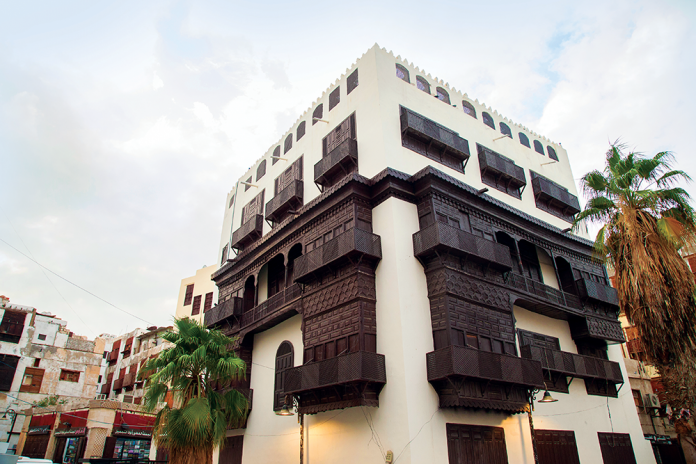JEDDAH: After the first phase of the White Land Tax (WLT) program generated SR1.4 billion ($373 million), the Ministry of Housing announced it will push ahead with the second phase of the initiative in the first quarter of 2021.
The Kingdom made the decision in 2016 to capitalize on undeveloped land in urban areas, which makes up 30 percent of those areas. A 2.5 percent tax, based on land value, was issued to landowners who had purchased plots but left them undeveloped.
The program aims to increase the volume of plots available to develop urban areas, offer residential land at reasonable prices and provide fair competition while stopping land monopolization.
Susan Amawi, strategic consulting director at real estate consultancy firm JLL, told Arab News that for the Kingdom to achieve its Vision 2030 goals it must continue to invest in giga-projects that help to develop the real estate sector. “The implementation of the second phase of the WLT program is expected to be a primary contributor to the Kingdom’s Vision, as it will encourage developers to speed up the development of their lands to avoid paying taxes,” she said.
The tax program was introduced in four phases. The first one imposes an annual fee on undeveloped plots with an area of 10,000 square meters or more. The second phase imposes tax on developed lands owned by a proprietor and where the plot is in a housing area exceeding 10,000 square meters.
The third phase covers developed land owned by a proprietor in an approved housing area when the total area exceeds 5,000 square meters. In the final phase, the fee is imposed on developed land belonging to a single owner in an urban area and where the plot is of a total area exceeding 10,000 square meters. According to Amawi, introducing the second phase is bound to “narrow (the) supply-demand gap” in the real estate sector, specifically middle-class housing areas and land that could be used for hotel and retail projects in secondary cities.
“Employing low-cost solutions, developments will raise the profile of the cities and bolster the growth of the real estate sector in the Kingdom,” she said.
One of the reasons why developers leave plots idle is high development costs, but Amawi advised them to avoid this by adopting innovative, modern construction techniques.
“Modern construction techniques (MCTs) such as modular or prefabricated construction and 3D printing are known for their sustainability and considerable efficiency in reducing construction cost and time,” she said.
“Research studies have proven that these techniques could save on construction costs by an average of 20 percent and on construction time by around 20 percent to 50 percent more than traditional construction methods,” she said. Opportunities to use these technologies are abundant in the Kingdom. In 2018, Saudi Arabia became the first Middle Eastern country to develop a 3D-printed house in Riyadh. The Ministry of Housing has also completed 23 projects on prefabricated villas to encourage these technologies.
As for hotel developers, Amawi believes MCTs can be used to enhance budget hotel experiences in the Kingdom.
“MCTs (could) contribute to the development of sustainable budget hotels, such as eco-lodges or green hotels. These are designed to blend seamlessly with the city’s culture, heritage and nature, and attract domestic or international tourists visiting on a budget,” she said.
Hotels could reduce operational costs if they invested in creative modern technologies such as “self-check-in hotel systems using mobile apps for room bookings and hotel amenities and room key-activated smart systems that go into energy-saving mode,” Amawi said.
In the retail sector, MCT could be used in indoor and outdoor cinemas, e-gaming expos, entertainment centers for families and concerts through refitting shipping containers, and by using 3D printing to create retail box parks, she said.

Saudi housing ministry program’s digital platforms handle 31k requests dailySaudi Arabia to supply more housing units to support needy families in 2021, says finance ministry

